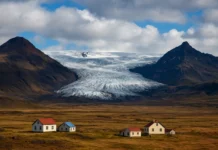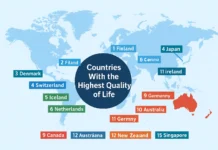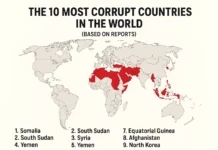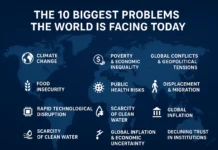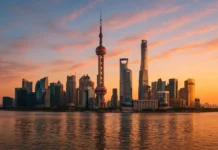Across the globe, safety remains one of the most prominent factors influencing travel, relocation, investment, and overall quality of life. Each year, the Global Peace Index (GPI)—a leading international benchmark produced by the Institute for Economics and Peace—evaluates countries according to safety, ongoing domestic and international conflict, and militarization.
Drawing on consistently top-performing nations from the Global Peace Index, this article highlights the 15 safest countries in the world, providing a comprehensive and timeless overview of nations renowned for stability, low crime rates, strong governance, and high social trust.
Below, you’ll find detailed insights on why these countries rank among the safest, along with a comparison table, FAQs, and a data-driven summary.
The 15 Safest Countries in the World
Iceland
Iceland consistently holds the top position as one of the world’s safest nations. Low crime, strong social cohesion, and a small population contribute to exceptional stability. Violent crime is scarce, and community trust levels are among the highest globally.
Why it’s safe:
• Nearly zero violent crime
• High trust in law enforcement
• Strong social welfare and equalityNew Zealand
New Zealand’s peaceful society, robust democratic institutions, and high levels of social trust make it one of the safest destinations in the world.
Why it’s safe:
• Low crime across major cities
• Transparent governance
• High respect for the rule of lawDenmark
Denmark’s combination of social equality, low corruption, and community trust helps maintain a secure environment.
Why it’s safe:
• World-leading levels of trust
• Strong welfare system
• Extremely low violent crimePortugal
Portugal has risen steadily in global peace rankings due to stability, friendly communities, and effective policing.
Why it’s safe:
• Calm political environment
• Low crime rates
• High safety for tourists and residentsSlovenia
Travel confidently in Slovenia, where a serene culture and minimal crime ensure peace of mind
Why it’s safe:
• Safe cities and rural areas
• Minimal violent crime
• High-quality healthcare and welfareAustria
Austria combines low crime with well-developed institutions and secure borders.
Why it’s safe:
• Efficient law enforcement
• Strong public services
• Stable political environmentSwitzerland
Neutrality, high income, and strong institutions make Switzerland one of the most secure nations.
Why it’s safe:
• Low crime across all cantons
• Strong community participation
• High-quality emergency response systemsJapan
Japan’s cultural focus on mutual respect and order contributes to exceptional public safety.
Why it’s safe:
• Extremely low violent crime
• Clean, well-policed cities
• Strong disaster preparednessCanada
Canada enjoys a high level of safety, supported by robust institutions, multicultural harmony, and professional police services.
Why it’s safe:
• High human rights protection
• Peaceful cities and communities
• Respect for diversitySingapore
Strict laws, efficient policing, and advanced surveillance help Singapore maintain remarkably low crime levels.
Why it’s safe:
• Near-zero violent crime
• Highly disciplined society
• Advanced public safety systemsFinland
Finland is renowned for its strong social structures, transparency, and collaborative society.
Why it’s safe:
• Very low crime
• High trust in government
• Strong welfare and education systemsCzech Republic
The Czech Republic offers safe cities, efficient policing, and low violent crime.
Why it’s safe:
• Secure border controls
• Reliable law enforcement
• Calm political environmentIreland
Ireland’s welcoming communities, low crime, and transparent public institutions keep it ranked as one of the safest countries.
Why it’s safe:
• Low homicide rates
• High social trust
• Peaceful civil societyNorway
Norway’s prosperity, equality, and strong community cohesion contribute to a safe and peaceful environment.
Why it’s safe:
• Low crime
• Strong public services
• Stable democratic governanceAustralia
Australia enjoys low crime, strong emergency services, and a stable political system.
Why it’s safe:
• Safe major cities
• High-quality policing
• Strong disaster management
Safest Countries Based on GPI Indicators
| Rank | Country | Key Safety Strengths | Known For |
|---|---|---|---|
| 1 | Iceland | Minimal crime, high trust | Peaceful society |
| 2 | New Zealand | Stable institutions | Outdoor lifestyle |
| 3 | Denmark | Low corruption, safety | Social equality |
| 4 | Portugal | Tourist safety, low crime | Coastal culture |
| 5 | Slovenia | Safe communities | Nature & mountains |
| 6 | Austria | Strong policing | Quality of life |
| 7 | Switzerland | Neutrality, high stability | Precision & order |
| 8 | Japan | Low crime, safe cities | Technology & culture |
| 9 | Canada | High human rights | Multicultural society |
| 10 | Singapore | Ultra-low crime | Clean, modern city |
| 11 | Finland | High transparency | Education excellence |
| 12 | Czech Republic | Calm cities | Affordable Europe |
| 13 | Ireland | Community peace | Friendly culture |
| 14 | Norway | High welfare | Nature & safety |
| 15 | Australia | Safe metropolitan areas | Stability & opportunity |
Frequently Asked Questions (FAQs)
What is the Global Peace Index?
The Global Peace Index (GPI) is an internationally recognized measure of peace and safety produced by the Institute for Economics and Peace. It evaluates countries on security, conflict, and militarization.
What makes a country “safe”?
A combination of:
• Low crime
• Effective policing
• Strong governance
• Social trust
• Minimal political instability
Are these countries safe for tourists?
Yes. These nations consistently rank among the safest places for tourism, solo travel, and family travel.
Why is Iceland always number one?
Because of:
• Nearly no violent crime
• High equality
• Strong community bonds
Does safety mean no crime at all?
No country has zero crime, but these nations maintain significantly lower crime rates and stronger institutions than most others.
Conclusion
The world’s safest countries share common characteristics: strong governance, social trust, low crime, and stable institutions. Whether for travel, migration, or research, these nations represent the highest global standards for peace and security.
For readers seeking secure environments, the countries listed here offer some of the world’s best examples of what peaceful, well-governed societies can achieve.
- Top 15 Countries With the Highest Quality of Life
- The 10 Most Corrupt Countries in the World (Based on Reports)


